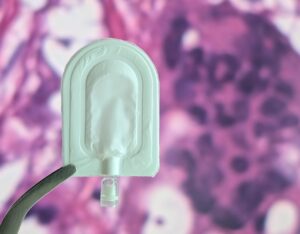November 25, 2019
The death of beta cells results from an autoimmune attack that is characteristic of type 1 diabetes (T1D). This can lead to low blood sugar (hypoglycemia), complications, and even unawareness among people with a severe form of the disease.
Sernova Corp., a regenerative medicine company based in London, ON., has shown in its JDRF-funded clinical trial that its cell replacement therapy, Cell PouchTM, can restore insulin production among people living with T1D.
An alternative to drugs, the Cell PouchTM system involves an implantable medical device that forms a highly vascularized environment in the body for the housing, function, and long-term survival of therapeutic cells, which release proteins or hormones to treat chronic diseases like T1D.
The detection of C-peptide, a biomarker of insulin production, in the bloodstream of the trial’s first patient is another important success in the field of beta cell replacement therapy – a strategy which aims to replace lost or damaged beta cells with insulin-producing beta cells in people with the disease. Supporting this area of research is also one of JDRF’s most critical undertakings, with an investment of more than $140 million to date.
JDRF is funding Sernova Corp.’s phase I/II clinical trial in participants with T1D and hypoglycemia unawareness based in Chicago, IL., USA. For more information on this study, please visit the clinical trials registry. For more details on recruitment and enrollment, please click here.
Beta cell replacement therapies aim to provide insulin on demand from cells implanted in the body and have the potential to eliminate insulin therapy and liberate people from the burdens of managing T1D for months or even years at a time. The shortage of donor beta cells and the need for strong immunosuppressive drugs, however, make beta cell transplantation an impractical solution for most people.
JDRF is heeding the call, advancing beta cell replacement technologies that can restore glucose control and deliver long-term insulin independence, without suppressing the body’s immune system and the ability to fight infections. Sernova Corp. is moving another step forward in the development of its Cell PouchTM and the technology will hopefully be approved in the coming years.



